Ain Shams University discusses "Egypt and sustainable development in the Nile Basin countries and Africa" at an international conference

Within the framework of the cultural season of the Center for Middle East Research and Future Studies at Ain Shams University, the center is preparing to hold the international scientific conference “Egypt and Sustainable Development in the Nile Basin Countries and Africa” next November 3 in the conference hall of the center, under the patronage of Prof. Dr. Mahmoud El-Metini, President of the University, Prof. Dr. Hisham Tamraz, Vice President The University for Community Service and Environmental Development Affairs, President of the Conference, Chairman of the Board of Directors of the Center, and Prof. Dr. Ashraf Mouns, Director of the Center and General Rapporteur of the Conference.
Prof. Dr. Ashraf Mounis, Middle East Research Center Director, said that this conference is being held to clarify Egypt’s role in achieving sustainable development for the Nile Basin countries and Africa, and Egypt’s keenness to build bridges of cooperation with the Nile Basin countries because of the strategic depth it constitutes for Egypt and what the Nile represents in the lives of Egyptians, it has become necessary Finding new mechanisms for regional cooperation between the Nile Basin countries and Africa.
His Excellency indicated that the objectives of the conference are the historical definition of the Nile Basin countries, the monitoring of Egypt's role in Africa and the Nile Basin countries, and the analysis of Egypt's activity in terms of sustainable development at the political, economic, social and cultural levels.
The conference also deals with the political effects on the Nile Basin countries and their role in the signed agreements and political and military relations, the influence of major powers on the decisions of the Nile Basin countries, the role of aid and grants received by the Nile Basin countries and their impact on the penetration of the donor countries to the national security of the Nile Basin countries and their incursion into the region.
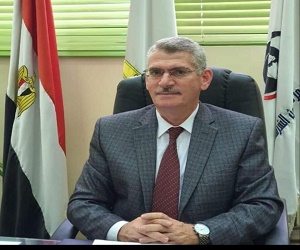 |
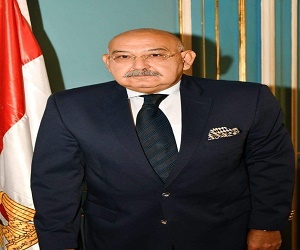 |
About the themes of the conference, Prof. Dr. Ashraf Mounis explained that it is a comprehensive, historical and political definition of the Nile Basin countries (historical overview) Egypt and its development impact on the Nile Basin countries, the challenges facing Africa and the Nile Basin countries from the major powers, Egypt’s political and military role in the Nile Basin countries, Egypt’s economic and social role in the Nile Basin countries, pointing out that Egypt’s cultural role in the Nile Basin countries, regional agreements between the Nile Basin countries, conflicts and disputes between the Nile Basin countries, Egypt’s role in confronting the conflicts between the Nile Basin countries, the issues and problems facing the Nile Basin countries External interventions in water problems, Egyptian projects in the Nile Basin countries and Africa, the Israeli role in the Nile water conflict between the Nile Basin countries, Israeli projects to exploit the Nile waters, Israeli contacts with the Nile Basin countries and penetration into Africa, regional integration and holding companies to achieve sustainable development, Relations Egyptian political and economic and the Nile Basin countries.
In addition to the political and economic empowerment in the Nile Basin countries, issues of cultural identity and heritage in the Nile Basin countries, the development of societies for the Nile Basin countries, Egypt and sustainable development in the Nile Basin countries in the various sectors (mining - energy - basic industry - transport and communications - tourism - health - population - Education), smart cities and sustainable urban development in the Nile Basin countries, climatic changes causes and solutions, natural resources and sustainable development in the Nile Basin countries, geology and mineral wealth in the Nile Basin countries, popular diplomacy as one of the mechanisms of rapprochement and integration among the peoples of the Nile Basin countries, human security challenges and human development in the Nile Basin countries.
The developmental role of women in the Nile Basin countries, combating terrorism, regional conflicts, civil wars and border issues and their impact on sustainable development.
Future development visions for the Nile Basin countries and Egypt and their role in issues of water, education, women, work, environment and climate in Africa.
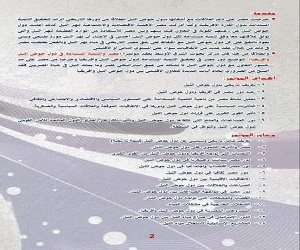 |
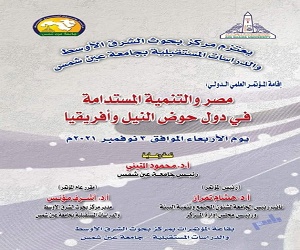 |
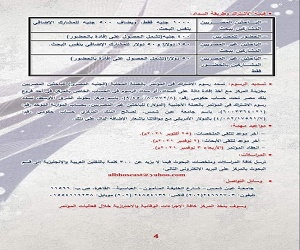 |
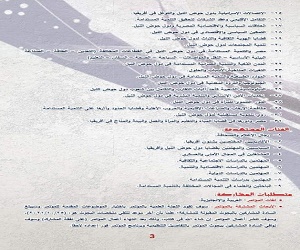 |


.svg)



